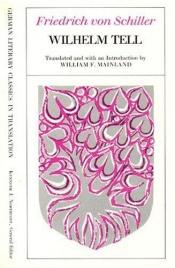Hamburger Lesehefte, Nr.7, Wilhelm Tell
Blurb
When Schiller completed Wilhelm Tell as a "New Year's Gift for 1805" he foretold that it would cause a stir. He was right. In the midst of Great Power politics a play which drew substance from one of the fourteenth-century liberation movements proved both attractive and inflammatory. Since then the work as become immensely popular. This new English translation by William F. Mainland brings out the essential tragi-comic nature of Wilhelm Tell but also emphasizes its impressive formal unity.Schiller based his play on chronicles of the Swiss liberation movement, in which Wilhelm Tell played a major role. Since Tell's existence has never been proven, Schiller, a historian by profession, felt he had to devise a figure who would bring the uncertainties and contradictions of the various Swiss chronicles into focus. Respected for his courage and skill with a bow, for his peaceable nature and his integrity, Schiller's archer—while always ready to aid his fellows—habitually seeks solitude. In the midst of political turmoil Wilhelm Tell is the nonpolitical man of action.
Keenly interested in the problematic interplay of history and legend, Schiller turned it to be dramatic advantage. He constructed his play to illustrate the greatest possible development of the character traits suggested for Tell by the chronicles. The result of Schiller's supreme achievement in historical drama.

 English
English Español
Español Deutsch
Deutsch










Member Reviews Write your own review
Be the first person to review
Log in to comment